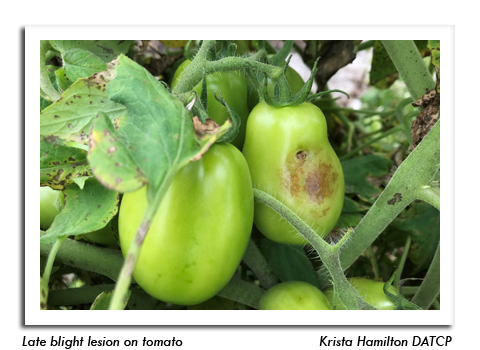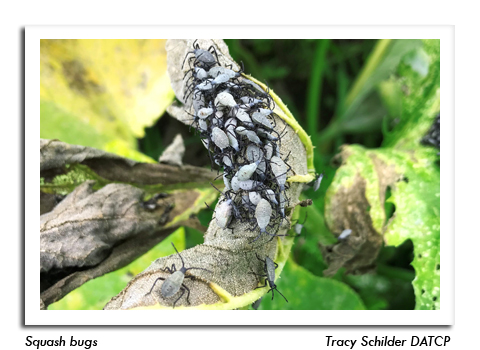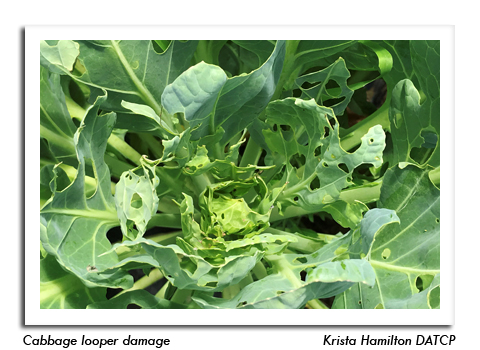
 |
|
|
Vegetables
Volume 64 Number 16 Date 08/15/2019 LATE BLIGHT - Two new cases of late blight were confirmed by the UW this week, one on tomato in Monroe County and the other on potato in Waushara County. These detections follow the season's first three cases in La Crosse, Portage and Wood counties. The predominant strain type identified so far is UW-23, which can be managed with phenylamide fungicides such as mefenoxam and metalaxyl. Test results for the Waushara County case are pending. Late blight could begin to spread rapidly if weather conditions turn cool and damp in coming weeks, causing entire plants to decline and die in as few as 7-10 days. It is critical that susceptible potatoes and tomatoes in the La Crosse, Portage, and Wood County areas be treated with a combination of antisporulant and protectant fungicides to limit new infections. Gardeners and potato growers elsewhere are advised to continue monitoring their crops for signs of infection, including brownish-black water soaked leaf lesions, dark stem lesions or sunken golden- to dark brown spots with distinct rings on the fruit surface. Removal and destruction of infected plants is required if lesions are noticed. Diseased plant material should not be composted. SQUASH BUG - All stages of this pest were observed this week on melons, pumpkins and squash in several community gardens. Most cucurbit crops have matured beyond the critical period of control (seedling and flowering stages), but squash bug feeding will persist through fall, causing aesthetic damage and, in extreme cases, killing plants. Disposing of all cucurbit foliage and plant debris around the garden will eliminate overwintering sites and help reduce next year's population. ONION MAGGOT - Late-summer flies are beginning to emerge in advanced southern Wisconsin locations with the accumulation of 3,230 degree days (base 40°F). Larvae from this third and final generation will overwinter in cull onions or bulbs left behind in fields. Good fall clean-up and rotating to a non-crop host are recommended if onion maggot problems occurred this season. Onion maggot degree days as of August 14 are as follows: Beloit 3,301, Madison 3,278, Eau Claire 3,065, Green Bay 2,908, and Hancock 2,874. CABBAGE LOOPER - Larval damage to cole crops is very common this season. Scouting should continue through early September. A 10% infestation rate is the suggested treatment threshold from early heading until harvest to protect the market quality of cabbage. The same threshold applies to broccoli and cauliflower once flowers or curds begin to develop. -- Krista Hamilton, DATCP Entomologist .jpg)


.jpg)

|
|
|